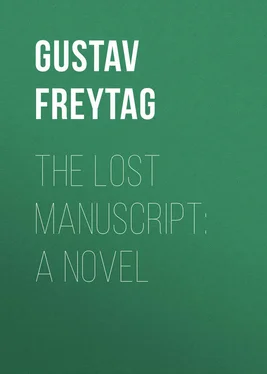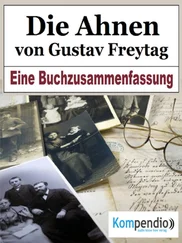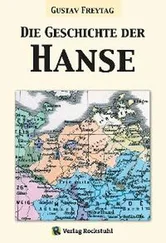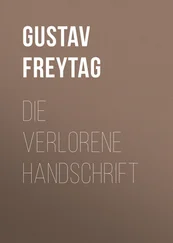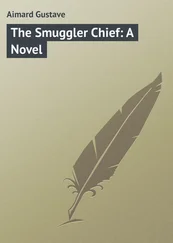Gustav Freytag - The Lost Manuscript - A Novel
Здесь есть возможность читать онлайн «Gustav Freytag - The Lost Manuscript - A Novel» — ознакомительный отрывок электронной книги совершенно бесплатно, а после прочтения отрывка купить полную версию. В некоторых случаях можно слушать аудио, скачать через торрент в формате fb2 и присутствует краткое содержание. Жанр: foreign_antique, foreign_prose, на английском языке. Описание произведения, (предисловие) а так же отзывы посетителей доступны на портале библиотеки ЛибКат.
- Название:The Lost Manuscript: A Novel
- Автор:
- Жанр:
- Год:неизвестен
- ISBN:нет данных
- Рейтинг книги:5 / 5. Голосов: 1
-
Избранное:Добавить в избранное
- Отзывы:
-
Ваша оценка:
- 100
- 1
- 2
- 3
- 4
- 5
The Lost Manuscript: A Novel: краткое содержание, описание и аннотация
Предлагаем к чтению аннотацию, описание, краткое содержание или предисловие (зависит от того, что написал сам автор книги «The Lost Manuscript: A Novel»). Если вы не нашли необходимую информацию о книге — напишите в комментариях, мы постараемся отыскать её.
The Lost Manuscript: A Novel — читать онлайн ознакомительный отрывок
Ниже представлен текст книги, разбитый по страницам. Система сохранения места последней прочитанной страницы, позволяет с удобством читать онлайн бесплатно книгу «The Lost Manuscript: A Novel», без необходимости каждый раз заново искать на чём Вы остановились. Поставьте закладку, и сможете в любой момент перейти на страницу, на которой закончили чтение.
Интервал:
Закладка:
Mrs. Hahn stepped to the window much shocked, and herself heard the name of her dear husband. She retreated quickly, for this insult from her neighbors brought tears into her eyes, and she sought for her pocket-handkerchief to wipe them away unperceived by her maid. Mrs. Hahn was a good woman, calm and agreeable, with a tendency to plumpness and an inclination quietly to do anything for the sake of peace. But this heartlessness of the daughter roused her anger. She instantly fetched her cloak from the closet, and went with the utmost determination across the street to the garden of the hostile neighbors.
Laura looked up astonished from the hideous dogs to the unexpected visitor, who came toward her with dignified steps.
"I come to complain, young lady!" began Mrs. Hahn, without further greeting. "The insults that have been heaped upon my husband from this house are insupportable. For your father's conduct you are not responsible; but I think it shocking that a young girl like you should also join in these outrages!"
"What do you mean, Mrs. Hahn?" asked Laura, excitedly.
"I mean the affront of giving a man's name to dogs. You call your dogs by all my husband's names."
"That I have never done," replied Laura.
"Do not deny it," cried out Mrs. Hahn.
"I never speak an untruth," said the girl proudly.
"My husband's name is Andreas Hahn, and what you call this beast is heard by the whole neighborhood."
Laura's pride was roused. "This is a misunderstanding, and the dog is not so called. What you say is unjust."
"How is it unjust?" returned Mrs. Hahn. "In the morning the father, and in the afternoon the daughter call him so."
A heavy weight fell on Laura's heart; she felt herself dragged down into an abyss of injustice and injury. Her father's conduct paralyzed her energies, and tears burst from her eyes.
"I see that you at least feel the wrong you are committing," continued Mrs. Hahn, more calmly. "Do not do it again. Believe me, it is easy to pain others, but it is a sorry business, and my poor husband and I have not deserved it from you. We have seen you grow up before our eyes; and even though we have had no intercourse with your parents, we have always been pleased with you, and no-one in our house has ever wished you ill. You do not know what a good man Mr. Hahn is, but still you ought not to have behaved so. Since we have dwelt here we have experienced many vexations from this house; but that you should share your father's views pains me most."
Laura endeavored in vain to dry her tears. "I repeat to you that you do me injustice; more I cannot say in self-justification, nor will I. You have grieved me more than you know, and I am satisfied that I have a clear conscience."
With these words she hastened into the house, and Mrs. Hahn returned home, uncertain as to the result of her visit.
Laura paced up and down her little room wringing her hands. Innocent and yet guilty in spite of her good will, wounded to the quick, dragged into a family feud, the unhappy results of which could not be foreseen, she reviewed the events of the past day in her excited mind. At last she seated herself at her little writing-table, took out her journal, and confided her sorrows to this silent friend bound in violet leather. She sought comfort from the souls of others who had borne up nobly under similar griefs, and at last found the confirmation of her experience in the expressive well-known passage of Goethe's Faust:
"Reason doth folly, good doth evil grow;
The child must reap the mischief that the fathers sow."
Had she not wished to do what was reasonable and kind, and had not folly and evil arisen from it? And had not misfortune befallen her without her fault merely because she was a child of the house? With this sentence she closed a passionate effusion. But in order not to appear to her conscience devoid of affection, the poor child wrote immediately underneath these words: "My dear, good father." Then she closed the book, feeling more comforted.
But the severest humiliation to her was the feeling that she should be judged unjustly by the people over the way; and she folded her arms and thought how she could justify herself. She, indeed, could do nothing; but there was a worthy man who was the confidant of every one in the house, who had cured her canary bird when ill, and removed a stain from the nose of her little bust of Schiller. She resolved, therefore, to tell only the faithful Gabriel what Mrs. Hahn had said, and not a word to her mother unless obliged to do so.
It happened that toward evening Gabriel and Dorchen entered into conversation in the street. Dorchen began to make bitter complaints of the spitefulness of the Hummels, but Gabriel earnestly advised her not to allow herself to be dragged into these disputes. Said he, "there must be some who take a neutral stand. Be an angel, Dorchen, and bring peace and good will into the house; for the daughter is innocent." Whereupon the history of giving the name was spoken of, and Laura honorably acquitted.
Then, when Gabriel, a little later, incidentally remarked to Laura: "This matter is settled; and Mr. Hahn has said that it had at once appeared to him improbable that you should be so ill-disposed toward him," – a heavy weight fell from her heart, and again her soft song sounded through the house. And yet she did not feel satisfied, for the annoyance to the neighboring house caused by her father's anger still continued. Alas! she could not restrain that violent spirit, but she must endeavor secretly to atone for his injustice. She pondered over this while undressing late at night; but when in bed, after entertaining and rejecting many projects, the right idea suddenly struck her; she jumped up at once, lighted her candle, and ran in her night-dress to the writing-table. There she emptied her purse, and counted over the new dollars that her father had given her at Christmas and on her birthday. These dollars she determined to spend in a secret method of reparation. Highly pleased, she took the precious purse to bed with her, laid it under her pillow, and slept peacefully upon it, although the spectral dogs raged round the house in their wild career, horribly and incessantly.
The following morning Laura wrote in large, stiff characters, on an empty envelope, Mr. Hahn's name and address, and affixed a seal on which was the impression of a violet with the inscription, "I conceal myself," and put it in her pocket. On her way to town to make some purchases she stopped at a hot-house, the proprietor of which was unknown to her. There she bought a bushy plant of dwarf orange, full of flowers and golden fruit-a splendid specimen of the greenhouse; with a beating heart, she drove in a closed cab, till she found a porter, to whom she gave an extraordinary gratuity, and bade him leave the plant and envelope at Mr. Hahn's house without word or greeting of any kind.
The man performed the commission faithfully. Dorchen discovered the plant in the hall, and it caused an agreeable excitement in the Hahn family-fruitless imaginations, repeated inspection, and vain conjectures. When at noon Laura peeped through the arbor into the garden, she had the pleasure of seeing the orange plant occupying a prominent place in front of the white Muse. Beautifully did the white and gold of the shrub glitter across the street. Laura stood long behind the branches, unconsciously folding her hands. Her soul was unburdened of the injustice, and she turned from the hostile house with a feeling of proud satisfaction.
Meanwhile there was a complaint issued and a suit was pending between the two houses, which was seriously increased on that very day by the adoption of the dogs' names "Fighthahn" and "Spitehahn."
Thus the peace in house and neighborhood was still disturbed. At first the pealing of bells had excited public opinion against Mr. Hahn, but this was entirely altered by the introduction of the dogs: the whole street went over to the man of straw ; the man of felt had all the world against him. But Mr. Hummel cared little for this. In the evening he sat in the garden on the upturned boat, looking proudly at the neighboring house, while Fighthahn and the other dog sat at his feet blinking at the moon, who in her usual way looked down maliciously on Mr. Hummel, Mr. Hahn, and all the rest of the world.
Читать дальшеИнтервал:
Закладка:
Похожие книги на «The Lost Manuscript: A Novel»
Представляем Вашему вниманию похожие книги на «The Lost Manuscript: A Novel» списком для выбора. Мы отобрали схожую по названию и смыслу литературу в надежде предоставить читателям больше вариантов отыскать новые, интересные, ещё непрочитанные произведения.
Обсуждение, отзывы о книге «The Lost Manuscript: A Novel» и просто собственные мнения читателей. Оставьте ваши комментарии, напишите, что Вы думаете о произведении, его смысле или главных героях. Укажите что конкретно понравилось, а что нет, и почему Вы так считаете.
